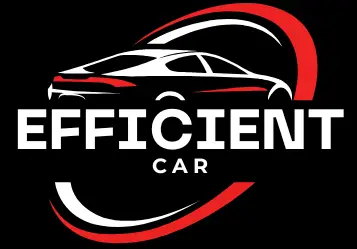How much do efficient cars save?

Lower Fuel Consumption: Efficient cars are designed to use less fuel compared to traditional vehicles. This means that you will need to fill up your tank less frequently, resulting in significant cost savings over time.
Efficient cars are revolutionizing the way we think about fuel consumption. Unlike their traditional counterparts, these vehicles are designed to use less fuel, leading to fewer trips to the gas station. This not only saves you money, but also has a positive impact on the environment. By reducing the amount of fuel you need to fill up your tank, efficient cars are helping to combat climate change and create cleaner air quality in our cities and neighborhoods. With rising fuel costs, the cost savings of owning an efficient car add up over time, making them a cost-effective choice for the savvy consumer.
One of the key benefits of efficient cars is their ability to travel longer distances on a single tank of fuel. With improved fuel efficiency, drivers can go further without needing to stop for fuel. This is particularly advantageous for those who frequently travel long distances or have long daily commutes. Not only does this save time, but it also means fewer interruptions to your journey. Moreover, the reduced need to fill up the tank frequently translates to significant cost savings. By spending less on fuel, you can allocate your hard-earned money towards other important aspects of your life, such as savings, investments, or experiences. Overall, lower fuel consumption is a win-win situation, benefiting both your pocket and the planet.
Reduced Carbon Emissions: By using less fuel, efficient cars produce fewer carbon emissions, making them better for the environment. Not only does this help combat climate change, but it also contributes to cleaner air quality in our cities and neighborhoods.
Efficient cars play a vital role in reducing carbon emissions and protecting the environment. By using less fuel, these vehicles emit fewer greenhouse gases, which helps combat climate change. This is a significant advantage as the transportation sector is a major contributor to global carbon emissions. By opting for efficient cars, individuals can make a positive impact on the planet and contribute to a healthier future.
In addition to combating climate change, efficient cars also contribute to cleaner air quality in our cities and neighborhoods. Traditional vehicles emit pollutants such as nitrogen oxides, carbon monoxide, and particulate matter, which pose a threat to human health and the environment. Choosing efficient cars that produce fewer emissions helps reduce these pollutants, resulting in improved air quality. This has direct benefits for people's respiratory health and overall well-being, creating a more livable and sustainable environment for everyone.
Savings on Maintenance: Efficient cars often have advanced technologies that help optimize engine performance and reduce wear and tear. This can result in lower maintenance costs, as these vehicles may require fewer repairs and have longer lifespans.
Efficient cars are equipped with advanced technologies that not only enhance engine performance but also minimize wear and tear. These cutting-edge features contribute to lower maintenance costs over time. By optimizing engine efficiency, these vehicles require fewer repairs, resulting in significant savings for car owners. Additionally, the longevity of efficient cars is extended, reducing the need for frequent replacements and further reducing maintenance expenses. With advanced technologies at their core, efficient cars offer a practical and cost-effective solution for those seeking to minimize their maintenance costs.
In addition to reduced repair needs and longer lifespans, efficient cars also benefit from improved overall reliability. The advanced technologies incorporated in these vehicles help to prevent common issues and malfunctions, translating into fewer unexpected breakdowns and disruptions to daily routines. With fewer trips to the mechanic, car owners can save time, money, and the frustration that often accompanies unexpected repairs. Moreover, the reliability of efficient cars provides peace of mind, enabling drivers to feel confident in their vehicle's performance and reducing the stress associated with potential mechanical failures. By prioritizing advanced technologies, efficient cars offer a reliable and hassle-free driving experience.
Tax Incentives: Many governments offer tax incentives or credits to individuals who purchase efficient cars. These incentives can help offset the initial cost of the vehicle and encourage more people to choose environmentally friendly transportation options.
Governments around the world are recognizing the importance of encouraging individuals to opt for environmentally friendly transportation options. One way they are doing this is by offering tax incentives or credits to those who purchase efficient cars. These incentives can provide a significant financial benefit, helping to offset the initial cost of the vehicle. By reducing the financial barrier to entry, more people are likely to consider purchasing efficient cars, thereby contributing to a greener and more sustainable future.
The availability of tax incentives for efficient cars serves as a strong incentive for individuals to make the switch. These incentives not only make environmentally friendly vehicles more accessible, but they also highlight the importance of reducing our carbon footprint and promoting cleaner transportation alternatives. By offering financial support, governments are actively encouraging individuals to make the choice that benefits both their wallets and the environment. This proactive approach is crucial in the fight against climate change and the adoption of more sustainable practices in our daily lives.
Insurance Discounts: Some insurance companies offer discounted rates for efficient cars due to their lower risk profile. These vehicles are often equipped with advanced safety features, which can result in fewer accidents and lower insurance premiums.
Efficient cars have become increasingly popular due to their lower risk profile, leading many insurance companies to offer discounted rates for these vehicles. The reason behind this is that efficient cars are often equipped with advanced safety features, which contribute to fewer accidents and ultimately lower insurance premiums. These safety features can include advanced braking systems, stability control, and collision avoidance technology, which all work together to enhance the vehicle's ability to prevent or minimize the impact of accidents. As a result, insurance providers view efficient cars as less risky to insure, providing an opportunity for drivers to save money on their premiums while prioritizing safety on the road.
Not only do efficient cars offer insurance discounts, but they also provide peace of mind for drivers and their passengers. The advanced safety features found in these vehicles are designed to reduce the likelihood and severity of accidents, offering added protection in various driving conditions. For instance, features such as lane-keeping assist, adaptive cruise control, and blind-spot monitoring systems can help drivers navigate the roads more safely. With these features, drivers can feel more confident and secure while behind the wheel, knowing that their efficient car is equipped with the latest safety technology. By investing in an efficient car, drivers not only save money on insurance but also gain an extra layer of protection on the road.
Resale Value: Efficient cars tend to hold their value well in the used car market. As more people prioritize fuel efficiency, the demand for these vehicles remains high, making them a smart investment that can provide a good return when it's time to sell or trade-in.
Efficient cars have proven to be a shrewd investment in the used car market. These vehicles tend to hold their value well, making them a popular choice among buyers. The increasing emphasis on fuel efficiency has further intensified the demand for these cars, ensuring their continued strong position in the resale market. For individuals looking to sell or trade-in their efficient car, this trend translates into a significant advantage, as they can expect a favorable return on their investment. Whether it's a hybrid, electric, or a fuel-efficient gasoline car, opting for an efficient vehicle is a wise decision that can pay off when it comes time to part ways with it.
Savvy car owners are realizing the long-term benefits of choosing an efficient car. As more consumers prioritize fuel efficiency as a key factor in their purchasing decisions, the demand for these vehicles remains consistently high. This widespread interest ensures a strong and steady market for efficient cars, enabling owners to sell or trade-in their vehicle at a competitive price. Whether it's the environmentally conscious buyers or those looking to save on fuel costs, the diverse range of buyers seeking efficient cars ensures that their resale value remains robust. Therefore, investing in an efficient car not only makes financial sense for individual owners but also reflects a broader societal shift towards sustainability and responsible consumption.
